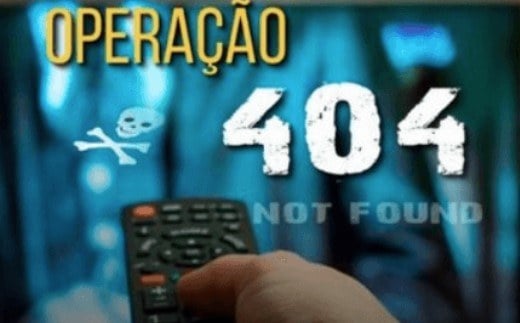For the past three years, authorities in Brazil have displayed new momentum in the battle against all types of pirate sites.
Following a complaint from local anti-piracy group APDIF (Association for the Protection of the Intellectual Property Rights of the Phonographic Industry), in January 2019 Brazil’s Federal Police shut down a private torrent site but that was just a taste of things to come.
Just months later, Brazilian law enforcement agencies launched a large anti-piracy campaign codenamed ‘Operation 404,’ a nod to the well-known HTTP error code. The aim was to take down pirate sites via suspensions, raids and arrests.
New Phase of Operation 404
This week, a new phase of Operation 404 was launched by the Civil Police of Rio de Janeiro in partnership with the government’s National Film Agency (ANCINE).
More than a dozen search and seizure warrants were executed in Rio de Janeiro, Duque de Caxias, Magé, Cabo Frio, and Casimiro de Abreu against three pay-TV piracy sites, two illegal streaming portals, and one IPTV service.
In common with previous actions, authorities are yet to name the affected platforms, but according to a statement from ANCINE anti-piracy coordinator Eduardo Carneiro, they are all suspected of breaching intellectual property rights and together attracted around 46 million visitors.
“Content is stolen and distributed illegally. Depending on the type of operation, with a monthly fee, or free of charge on websites, with funding made through advertising,” Carneiro says.
“Evidence of the occurrence of the crime, such as computers, cell phones, which may produce evidence within the investigation and perhaps even the illicit acquisition center of audiovisual content,” were items of interest, he added.
Three People Detained, One Caught ‘Red-Handed’
As part of the operation the Civil Police detained three people and took them to the Cidade da Polícia for questioning.
Two were released after giving statements but according to Brazil’s G1, one of the suspects – accountant Bruno da Silva Guimarães – was caught “red-handed” in his office where a computer was “broadcasting pirated content.” He was later released on bail with his lawyer declining a request for comment.
“According to the investigations, the targets created distribution centers where they clandestinely sold the packages and violated copyrights,” says Pedro Brasil from the Department for Repression of Crimes Against Intellectual Property (DRCPIM).
Operation 404 is coordinated by the Integrated Operations Secretariat (SEOPI), a federal public higher-level body linked to the Ministry of Justice and Public Security (MJSP), and has support from United States and United Kingdom authorities.
In the first wave, 136 sites and 100 apps were targeted and in the second, another 300 were added to the list. The third wave in 2021 saw law enforcement officials block or seize the domains of 334 websites, 94 piracy apps, and 20 IP addresses.
 For the past three years, authorities in Brazil have displayed new momentum in the battle against all types of pirate sites.
For the past three years, authorities in Brazil have displayed new momentum in the battle against all types of pirate sites.



